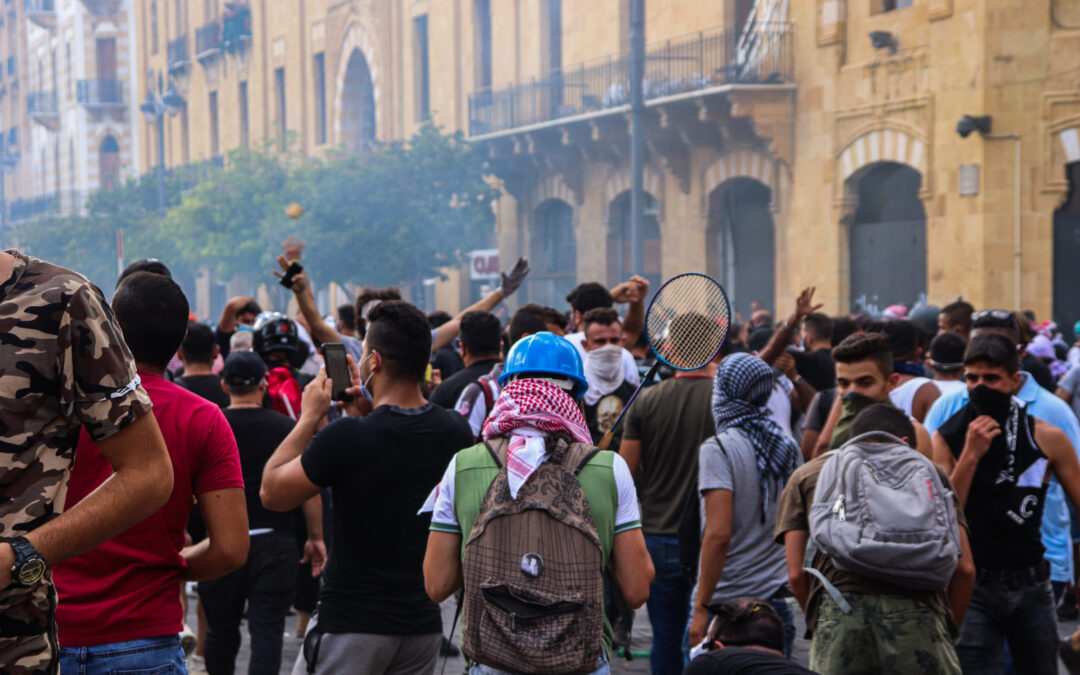
Aug 11, 2020 | News
The ICJ is concerned at reports that on 8 and 9 August, Lebanese security forces, including Internal Security Force (ISF) units, parliamentary police and the army, employed excessive and unlawful force against hundreds of protestors, resulting in the injury of more than 700 people and dozens of hospitalizations.
The ICJ called on the Lebanese authorities to protect the rights to freedom of peaceful assembly and expression and refrain from using excessive and unlawful force against protestors demanding justice for the 4 August explosions in Beirut’s port district.
The explosions devastated the city’s infrastructure and resulted in the death, injury and internal displacement of large numbers of its inhabitants.
The ICJ stressed that credible allegations of excessive and unlawful use of force in the context of the protests must be promptly, thoroughly and impartially investigated and those responsible must be held to account.
According to information available to the ICJ, at least 14 journalists and media personnel covering the protests were among the wounded.
According to reports, a policeman also died after falling down an elevator shaft while being chased by protesters. While there were reports that some demonstrators threw rocks and firecrackers at security forces, reports also indicate that the security forces’ response was indiscriminate and, in some instances, excessive.
“Many protestors in Lebanon continue to be met with excessive and unlawful force by security agencies, telling the same grim story of how the Lebanese authorities habitually respond to unwelcome political expression and the grievances of the Lebanese public,” said Kate Vigneswaran, the ICJ’s Middle East and North Africa Programme Senior Legal Adviser.
“The people of Beirut have the right to peacefully express their outrage, at alleged official malfeasance that apparently contributed to last week’s tragic devastation, and to expect security forces will comply with the law,” she added.
Information from ICJ interviews with three protestors, and substantiated by reports by multiple media and news agencies, reveal that security forces fired large quantities of tear gas, in addition to rubber bullets, at protestors in several locations in central Beirut, including a gathering of at least 10,000 people including children at Martyr’s Square and those who occupied Parliamentary and ministerial buildings.
Reports also indicate that live ammunition was fired by security forces during the protests, namely birdshot.
A protestor interviewed by the ICJ stated that he was shot in the arm by a rubber bullet and in the leg by a pellet gun, the latter lodging shrapnel into various parts of his body.
Social media reports reveal that some protestors were shot in the face and eyes with rubber bullets. The ISF has denied using rubber bullets.
According to another protestor, government loyalists attacked her in the presence of ISF officers and the army as she filmed scenes outside the American University Hospital, threatening her with violence and by breaking her mobile phone.
Similar reports of security forces indiscriminately beating and harassing protesters have surfaced on social media platforms.
International law, governing the use of force by law enforcement officers, which is binding on Lebanon, mandates that force is only permissible as a last resort for the sole purpose of protecting life or preventing serious injury from an imminent threat, if strictly necessary and only to the extent necessary for the performance of their duty.
All use of force must be discriminate and proportionate to the threat of harm.
The ICJ has called for a prompt, transparent, independent and impartial investigation into the 4 August explosions by a special, independent mechanism, given the documented lack of independence in certain parts of the Lebanese judiciary, which was echoed by other human rights organizations and members of the international community.
Lebanon’s President dismissed the call as “a waste of time” and instead urged the Lebanese judiciary to act swiftly to probe the incident.
Prime Minister Hassan Diab announced his cabinet’s resignation on Monday following widespread calls for the political establishment to resign from their posts following the explosion. Nine members of Parliament, two government Ministers and the Lebanese Ambassador to Jordan had also resigned from their posts over the weekend.
“The explosions were devastating for the people of Beirut, resulting not only in the loss of life and massive injuries, but severe curtailment of their rights to housing and health and their other socio-economic rights,” said Vigneswaran.
“Based on the response of the Lebanese authorities thus far, and given their poor track record in pursuing and realizing accountability, it is clear that there is an urgent need for a proper accountability mechanism to investigate the explosions and respond to victims’ demands and calls for justice. A change in government is not enough,” she added.
Contact
Kate Vigneswaran, Senior Legal Adviser, ICJ Middle East and North Africa Programme, t: +31-62-489-4664; e: kate.vigneswaran(a)icj.org
Download
Full story with additional information: Lebanon-Protests-News-Press releases-2020-ENG
Arabic version: Lebanon-Protests-News-Press releases-2020-ARA
Photo Credit: Aya Nehme
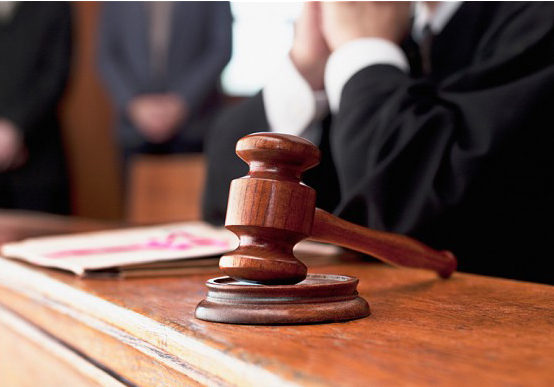
Aug 7, 2020 | Advocacy, Agendas, News
On 6-7 August the ICJ co-hosted a symposium on threats to judicial independence in East and Southern Africa.
The event was held with the collaboration of the Africa Judges and Jurists Forum, the Kenyan Section of the International Commission of Jurists Kenya Section, Open Society Initiative for Southern Africa, Southern Africa Development Community Lawyers Association, Malawi Law Society, Pan African Lawyers Association, East Africa Lawyers Association and the American Bar Association.
Recent actions taken to undermine judicial independence in East and Southern Africa include proposed constitutional amendments, executive interference with the functioning of the Judicial Service Commissions and verbal as well as physical threats against judges.
Participants in the symposium included judges, lawyers, academics and civil society representative. ICJ Commissioner and former Chief Justice of Kenya Dr Willy Mutunga, and Professor Jill Ghai of Katiba Institute delivered the key note addresses.
Dr Willy Mutunga speaking to challenges of judicial independence in the political context of Kenya in his keynote address, said “I believe that the independence of the judiciary… is about the integrity of the judicial officers… Building peoples’ confidence in the judiciary and the judicial officers depends on the integrity of the institution and its judicial officers and staff.”
In her address, Professor Jill Ghai evaluated various ways in which independence of the judiciary is undermined, taking into account examples from various countries.
“We must not relent in letting the Executive know that we are watching whenever there are attempts to undermine the judiciary,” Ghai said in closing.
ICJ Secretary General Sam Zarifi that judicial independence was facing genuine threats, not just in Africa but throughout the world.
“The issue of judicial independence has been at the heart of the ICJ’s work for the last 70 years almost… We have been defending the rule of law and human rights. For both of those the independence of the judiciary is absolutely essential,” Zarifi said.
On the second day of the symposium, participants into four groups discussed the nature of challenges and weaknesses in the Executive-Judiciary relations, litigation as a strategy for protecting judicial independence, strategies for increasing social and political activism in defence of judicial independence, and the prospects and strategies for regional and international advocacy in the age of COVID-19 respectively.
In his closing remarks, outgoing ICJ Regional Director Arnold Tsunga flagged Malawi as a recent case study where the judiciary had demonstrated its independence when the Constitutional Court nullified the 2019 presidential election results, citing widespread irregularities.
Watch the proceedings of the symposium here:
Welcome and keynote address
Closing remarks
Contact:
Justice Mavedzenge (ICJ Legal Advisor) t: +27793889990 e: justice.mavedzenge(a)icj.org
Shaazia Ebrahim (ICJ Media Officer) t: +27716706719 e: shaazia.ebrahim(a)icj.org
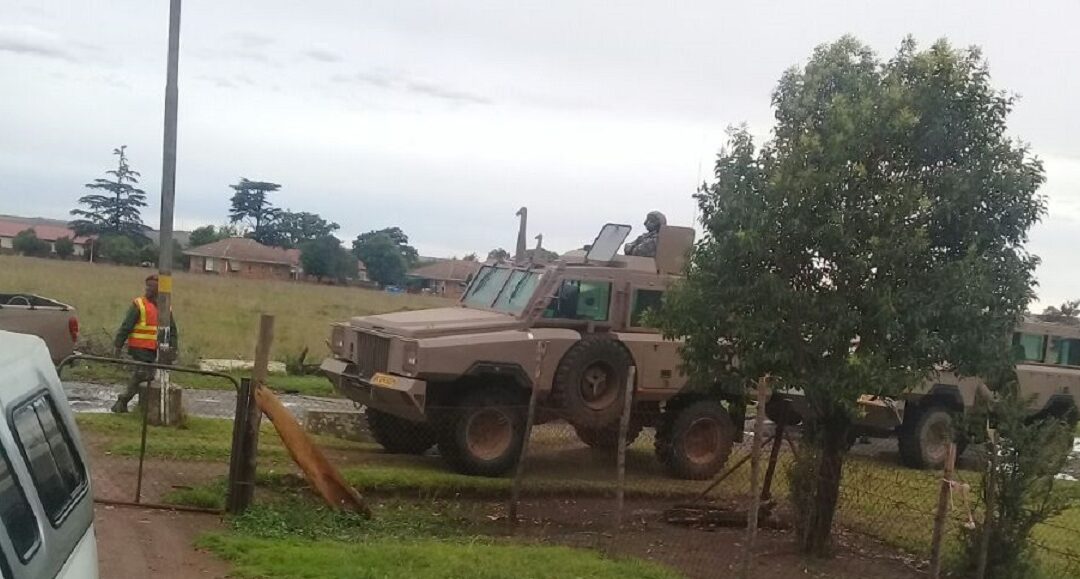
Jul 31, 2020 | Advocacy, Open letters
The ICJ and the South African Human Rights Defenders Network (SAHRDN) have written to the United Nations Special Rapporteur on the Situation of Human Rights Defenders, the African Commission on Human and Peoples’ Rights Special Rapporteur on Human Rights Defenders, and the Chairperson of African Commission on Human and Peoples’ Rights.
They have detailed the continued intimidation and harassment of the residents of Happiness village by the South African National Defence Force (SANDF).
“We have written to the Special Rapporteurs because the SANDF is unrelenting in its abuse of the resident’s despite the best efforts of their legal representatives and repeated court orders,” said ICJ Legal Adviser in South Africa Tim Fish Hodgson.
“A community leader was placed under house arrest guarded by four soldiers for seven days. Another resident was subjected to a punishment by which was told to lie flat on the ground and ‘pray to his God’ for simply leaving his home. Others have been assaulted. The SANDF deliberately conducts military exercises near the residents’ homes late at night to scare and intimidate them. All this with utter disregard for the law and in direct violation of a number of court judgments and orders”, he added.
The residents, who were forcibly and violently evicted from Marievale military base beginning in 2017, have repeatedly been granted court orders by the High Court declaring such evictions unlawful and directing the SANDF to refrain from harassing, threatening and intimidating the residents and not to restrict their movement.
Despite this, and in the midst of the COVID-19 pandemic, further evictions and constant harassment and intimidation continues unabated and has intensified to a point that the residents describe the SANDF as having “laid siege” to their homes in Happiness Village which is adjacent to Marievale military base.
Soldiers now police checkpoints, preventing visitors from entering the area and even journalists have been prevented from entering Happiness Village. The residents’ legal representatives were only allowed to visit a single community representative under armed military guard.
As the letter reveals, the SANDF’s actions amount to violations of the residents’ right to adequate housing protection in terms of the South African Constitution, the African Charter on Human and People’s Rights and the International Covenant on Economic, Social and Cultural Rights.
The intimidation, harassment, humiliation and assault of the residents’ amount to violations of the residents’ rights to liberty and security of person and may also amount to cruel, inhumane and degrading treatment or punishment in violation of the South African Constitution and international human rights law.
They seem to be geared at making the resident’s lives intolerable in order to secure evictions “through the backdoor”, which is explicitly prohibited in South African law.
The residents, represented by Lawyers for Human Rights, will once again be in urgent court on July 31 seeking an interdict to prevent further harassment, intimidation and restrictions on their movement by the SANDF. The legal representatives of the SANDF have indicated that they intend to oppose their application.
The ICJ has therefore implored the Special Rapporteurs to:
1. Call on the SANDF, the Minister of Defence and Military Veterans and on the Ekurhuleni Municipality to desist from any further evictions, relocation, intimidation, harassment, humiliation, and assault of the Marievale community residents;
2. Call on the SANDF, the Minister of Defence and Military Veterans and the Ekurhuleni Municipality to immediately lift and ensure the non-recurrence of restrictions on the movement on Happiness Village residents;
3. Call on the President of South Africa, as the Commander in Chief of the SANDF, to take appropriate action to ensure that the human rights violations that the residents of Marievale have suffered at the hands of the SANDF on a continuous basis since 2017 be investigated, and that appropriate action be taken to ensure access to justice and effective remedies for the residents; and
4. Call on the Parliamentary Portfolio Committee on Defence and Military Veterans to ensure the accountability of the Minister of Defence and Military Veterans for the human rights violations to which the SANDF has subjected the residents on a continuous basis since 2017.
Read the full letter here.
SouthAfrica-SAHRDN-ICJ Letter to SRs on HRDs-Advocacy-open letters-2020-ENG
Contact:
Tim Fish Hodgson (ICJ Legal Adviser) t: +27828719905; e: timothy.hodgson(a)icj.org
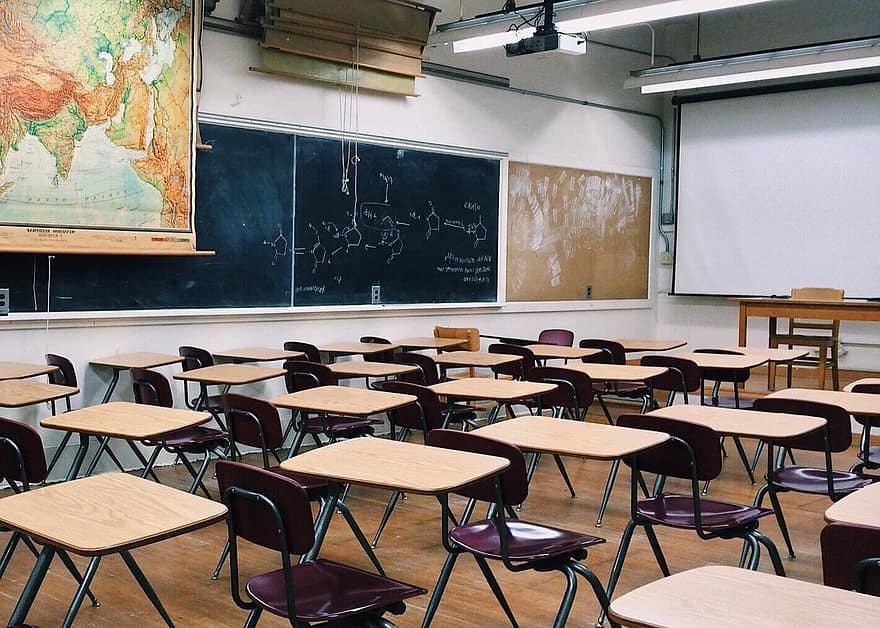
Jul 31, 2020 | Agendas, Events, News
The ICJ, together with the Global Initiative on Economic, Social and Cultural Rights (GI-ESCR) and the Right to Education Initiative (RTE), held webinars on 24 and 31 July.
The discussions explored The Guiding Principles on the Human Rights Obligations of States to provide public education and to regulate private involvement in education (Abidjan Principles) and their application in the context of COVID-19.
The webinars focused respectively on public education and private education.
Participants included judges and representatives of civil society organizations from Kenya, Uganda, South Africa and Sierra Leone.
“The aim of the conversation in these webinars is to better understand the problems facing civil society and judiciaries in the four countries in ensuring the protection of the right to education in the context of Covid-19 and the increased privatization of education,” said ICJ Commissioner Justice Jamesina King of Sierra Leone.
The Abidjan Principles, based in large measures on existing international law and standards, were developed by leading international experts and adopted in 2019.
They clarify and set out elements of State obligations to uphold the right to education and related standards in both public and private educational settings.
Participants were able to deepen their understanding of the Abidjan Principles as well as the increased pressure placed on education systems across Africa as a result of COVID-19.
“COVID-19 has dramatically exacerbated already well-known issues in the realization of the right to education” and the “divide in quality of access to education between public and private sectors,” added Justice King.
“Private actors in particular… have been reported to have capitalized on the pandemic to extend their business in the education sectors.”
Participants raised concerns about the use of public funds to support private actors in education, an issue which is addressed by the Abidjan Principles.
Ashina Mtsumi from the GI-ESCR, summarized the Abidjan Principles and emphasized that “States’ first priority should be public education, as there is no obligation for states to fund private actors in education.”
A theme emerging from the discussions was the important role of the State in regulating private actors in education in the context of the global pandemic. Judges discussed the role of the judiciaries in their respective countries in ensuring the protection of the right to education.
“Can courts force private institutions to continue [operating] or even reduce school fees as an incidence of the right to education?,” Justice Joel Ngugi of Kenya asked.
Justice Ngugi also highlighted the need for governments to ensure that schools are safe for all learners in the context of COVID-19.
Judge Lydia Mugambe said that while in Uganda the pandemic had seen some private schools continuing with online learning, learners in public schools had had to depend on State provision of learning through newspapers and news stations which had not been sufficient. In the COVID-19 context, States must ensure that they continue to “require private instructional educational institutions to meet the minimum standards set by the State”, as indicated by the Abidjan Principles.
“The real problem is that our infrastructure is bad, the education system is bad and we have had a constitutional right to education since 1994 and I am embarrassed to say that the Covid-19 crisis has not exacerbated the problems, but has exposed the problems and have left no place to hide for years and years of government negligence,” said former Justice of the Constitutional Court in South Africa Zak Yacoob.
Representative from civil society organizations from all four countries emphasized the increasing risks introduced to the right to education as a result of privatization of education in Africa.
Watch the first webinar here.
Contact:
Khanyo Farisè (ICJ Legal Adviser) e: Nokukhanya.Farise(a)icj.org
Tim Fish Hodgson (ICJ Legal Adviser) t: +27828719905; e: timothy.hodgson(a)icj.org
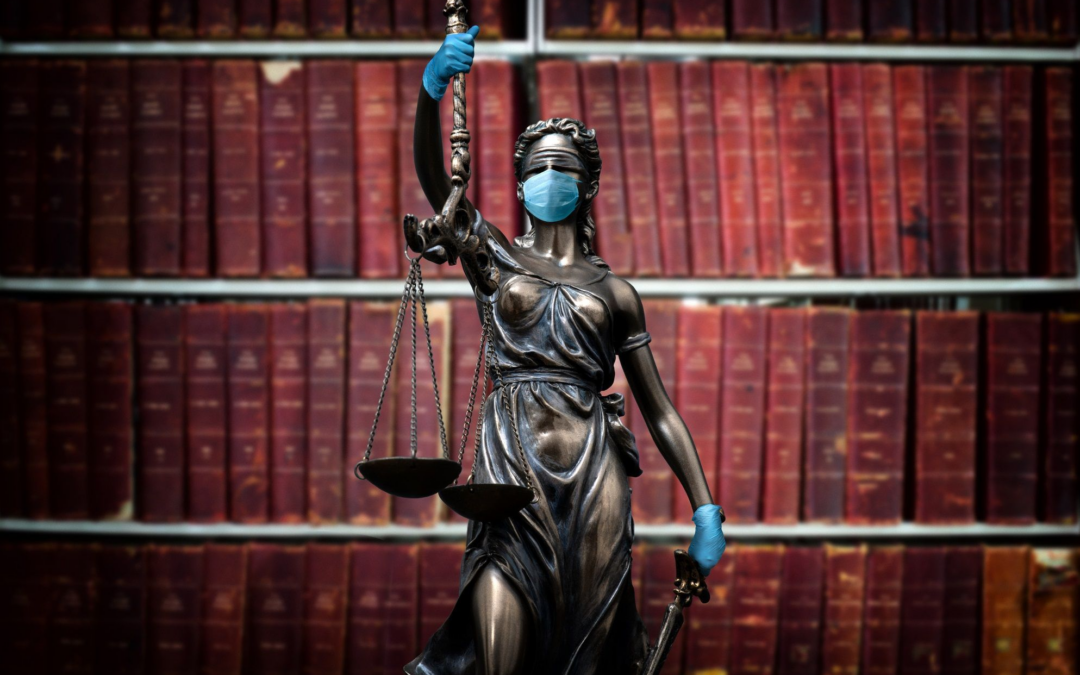
Jul 30, 2020 | Адвокаси
Международная комиссия юристов (МКЮ) обеспокоена тем, что в Казахстане, Кыргызской Республике, Таджикистане и Узбекистане пандемия COVID-19 и меры, с заявляемой целью ее сдерживания, привели к значительному сокращению доступа к правосудию. Ограничения влияют на работу судов и препятствуют адвокатам оказывать эффективную юридическую помощь своим клиентам.
В контексте пандемии COVID-19 – как в условиях чрезвычайного положения или в его отсутствие –обязательства государств по международному праву в области прав человека сохраняются в части поддержания основных гарантий справедливого судебного разбирательства и обеспечения доступа к эффективным средствам правовой защиты от нарушений прав человека. Право на справедливое судебное разбирательство предусматривает право на достаточное время и возможности для подготовки своей защиты, что, в свою очередь, требует обеспечения эффективного и конфиденциального общения с адвокатом.
В свете сказанного МКЮ призывает государства Центральной Азии, несмотря на ограничения в связи с COVID-19, по-прежнему обеспечивать доступ к адвокату и принять меры, позволяющие адвокатам эффективно и конфиденциально общаться со своими клиентами в безопасной обстановке, в том числе в местах содержания под стражей или в ходе онлайн-слушаний. Кроме того, вне зависимости от того, где и когда властями вводятся ограничения в отношении физических встреч или поездок, с заявляемой целью сдерживания пандемии COVID-19, МКЮ призывает государства Центральной Азии обеспечить, чтобы доступ к суду гарантировался посредством конкретных правовых, административных и практических мер.
Проведенные МКЮ исследования и обсуждения с местными юристами показали, что во странах Центральной Азии нормативно-правовые акты, принятые в условиях COVID-19, которые касаются отправления правосудия, характеризуются расплывчатыми формулировками, противоречивыми и нечеткими указаниями. На практике это имело весьма серьезные последствия с точки зрения права обвиняемых на справедливое судебное разбирательство: в некоторых случаях защитникам не разрешалось встречаться со своими клиентами, обвиняемыми в тяжких преступлениях; в других случаях свидания адвокатов с клиентами были очень непродолжительными, что не позволяло адвокатам получать надлежащие инструкции от своих клиентов и дать им соответствующие рекомендации; в других ситуациях защитники общались со своими клиентами в обстановке, когда конфиденциальность их общения посредством виртуальных коммуникационных платформ не была гарантирована, и которые они были вынуждены использовать. Ограничительные меры, введенные властями в сфере отправления правосудия, также имели негативные последствия с точки зрения доступа к правосудию и эффективных средств правовой защиты для жертв нарушений прав человека; в частности, во всем регионе был затруднен доступ к правовой помощи по делам о домашнем насилии.
Во многих зданиях судов требования о социальном дистанцировании не были отрегулированы таким образом, чтобы обеспечить соблюдение права на публичное судебное разбирательство. Также отсутствуют достаточные указания на то, как будет обеспечено право на публичное судебное разбирательство в онлайн формате, в том числе, как будет реализовываться право на равенство сторон и право на юридическое представительство.
В Казахстане большинство судебных заседаний проводились в режиме онлайн с использованием онлайн-платформ, которые обеспечивали доступ к судам в большей степени, чем в других странах региона. Тем не менее, адвокаты выражают самые разные опасения, указывая на то, что онлайн-слушания отрицательно влияют на право на юридическую помощь, поскольку не сопровождаются мерами, гарантирующими достаточное время и возможности для подготовки защиты, а также часто проводятся таким образом, который подрывает принцип равенства сторон и конфиденциальность общения адвоката с клиентом. Кроме того, отсутствует ясность в отношении того, почему некоторые дела рассматриваются непосредственно в залах судебных заседаний, а другие назначаются к онлайн-рассмотрению или переносятся. Адвокаты также отметили, что суды стали оставлять все больше исков без рассмотрения по крайне формальным или даже сомнительным основаниям. Право на публичное разбирательство также часто оказывается под угрозой, если слушание проводится в онлайн формате, поскольку отсутствуют какие-либо нормативные акты, которые бы официально регулировали, каким образом общественность может наблюдать за ходом процесса.
В Кыргызской Республике в начале пандемии большинство судебных заседаний фактически были перенесены, а здания судов были закрыты, за исключением рассмотрения неотложных дел, как правило, связанных с содержанием под стражей. При этом имело место вопиющее упущение, так как адвокаты не были внесены в список профессий, на которые не распространялись ограничения на передвижение во время карантина. Адвокаты сталкивались со сложностями при доступе к своим клиентам в местах содержания под стражей. В настоящее время суды возобновили рассмотрение дел в залах судебных заседаний, но отправления правосудия в условиях COVID-19 остается недостаточно разработанным, что создает дополнительные сложности для адвокатов. Адвокаты из Кыргызской Республики также отмечают, что некоторые дела, в том числе по вопросу о необходимости продления заключения под стражу, проводились по-видимому онлайн или по видеосвязи, несмотря на отсутствие нормативно-правовой базы, регулирующей проведение виртуальных слушаний. В результате по ряду дел могло быть нарушено право на справедливое и публичное судебное разбирательство и право на свободу.
В Таджикистане ограничения в связи с карантином формально не вводились, и в отсутствии официально опубликованных нормативных актов по противодействию COVID-19 сформировалась непоследовательная практика судов в разных частях страны. Сообщается о том, что в некоторых областях суды функционируют практически как обычно, в то время как в других судебные заседания откладываются или суды вообще прекращают свою деятельность. Во многих случаях адвокаты отмечают, что неопределенность относительно работы судебной системы в условиях пандемии COVID-19 отрицательно влияет на доступ к судам и возможности адвокатов эффективно выполнять свои обязанности. Некоторые адвокаты жалуются на ограниченный доступ к своим клиентам в местах предварительного заключения.
В Узбекистане члены Палаты адвокатов должны соблюдать общее правило, согласно которому использование личных транспортных средств допускается только в течение нескольких часов в день и совсем исключается в ночное время и в выходные дни. В отличие от работников прокуратуры, следователей и других работников системы правосудия, адвокаты не были включены в число лиц, которые могут использовать специальные стикеры, позволяющие перемещаться без ограничений. Адвокаты могут рассчитывать только на ведомственный транспорт правоохранительных органов или Министерства юстиции, который может предоставляться им по запросу суда в ограниченных случаях, когда их участие требуется по закону. При таких обстоятельствах существует угроза того, что независимость адвокатов и доступ к юридическому представительству как в суде, так и в ходе предварительного следствия, когда лица имеют право быть представленными адвокатом по своему выбору, могут быть существенно ограничены.
Хотя ограничительные меры могут быть необходимы для эффективного противодействия пандемии, а значит, для защиты права на жизнь и на здоровье, МКЮ напоминает, что правосудие должно отправляться даже в случае официального введения чрезвычайного положения, чтобы обеспечить право на справедливое судебное разбирательство, гарантированное статьей 14 Международного пакта о гражданских и политических правах, участниками которого являются все государства Центральной Азии.
Справочная информация:
12 июня 2020 года МКЮ опубликовала аналитическую записку с описанием ограничительных мер, которые затронули судебную систему и доступ к правосудию. В документе представлены разделы по Казахстану, Кыргызстану и Узбекистану. В нем рассматривается проблема законодательного регулирования ограничительных мер, а также доступа к правовой помощи и суду в связи с ограничениями в условиях COVID-19. Этот информационный документ является дополнением к общей аналитической записки МКЮ по COVID-19 и судам, в которой более подробно разъясняются соответствующие международные принципы и нормы.
10 июля 2020 года МКЮ провела онлайн-дискуссию для юристов и представителей гражданского общества в Таджикистане о доступе к правосудию в условиях пандемии COVID-19.
22-23 июня 2020 года МКЮ выступила одним из организаторов масштабной онлайн Экспертной дискуссии по вопросам влияния COVID-19 на доступ к правосудию с точки зрения экономических, социальных и культурных прав в Узбекистане, а также аналогичного опыта стран Европы и Центральной Азии.
15 мая 2020 года МКЮ выступила одним из организаторов международной онлайн-конференции «Закон и права человека в условиях пандемии» в Казахстане, в ходе которой ведущие правовые эксперты и практикующие юристы из Центральной Азии и других стран обсудили наиболее актуальные вопросы обеспечения прав человека и доступа к правосудию во время пандемии.









